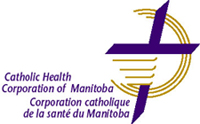Geography Professor joins Lay Panel to Address Palliative Care Gaps
/Palliative Care Matters conference becomes turning point for Canadian consciousness and action
“I became involved in this panel, partially because of societal concern, but when my mother was diagnosed with uterine cancer last year. It hit me, partially because when she told me, she was very sad. And I realized it was the first time I’d ever heard my mother sad. And it became clear very quickly that she cared for everyone else, but never herself. But suddenly she was in the position where she was needing care.
“But luckily I’m academic, I was on sabbatical, so I put my research aside and I was able to care for her daily for the last six months of her life. And in the process I realized the difficulty of navigating the healthcare system… and social agencies,” said Ken MacDonald, a University of Toronto professor and a member of the lay panel at the Palliative Care Matters Consensus Development Conference.”
The conference, held Nov. 7 – 9 in Ottawa, was a turning point in Canada’s consciousness and the decisions that need to be made about supporting Canadians suffering from life-limiting illnesses. While palliative care has been studied extensively in Canada over the past two decades, this conference was significant in four ways: it focussed on the voice of patients and their families, it presented extensive research from diverse areas of study, it included multiple stakeholders who came to a common frame of reference, and it involved a lay panel of Canadian citizens that, like a jury, sifted and sorted the scientific evidence through the lens of their experience and came to a set of recommendations – the Consensus Statement.
Palliative Care Matters engaged the general public through a pre-conference Ipsos survey of 1,540 Canadians, through people who viewed the conference over the web at more than 200 sites, and through the lay panel.
“I’m extraordinarily well educated. I’m reasonably well off. I can take the time to do this [care for his mother]. I’m the like 0.1 per cent of the population that can do this and not suffer as a result of it. What are the other 99.9 per cent of the population going to do when this hits them?” continued lay panel member Ken MacDonald when he was interviewed at the conference.
“We have to develop a better system than leaving everyone to their own devices, just trying to fill the gaps. Because not everyone can deal with those circumstances either financially or emotionally or in terms of their own life circumstances.”
The priorities for consideration by Palliative Care Matters were identified from 20 years of largely unaddressed recommendations for palliative care. Academics researched six probing questions, reflecting on the Ipsos survey data and the most current research from around the world, to provide the lay panel with the best scientific evidence and emerging perspectives. The unprecedented integration of the lived experience of Canadians with the leading thinking from an interdisciplinary group of academics – about all aspects of palliative care planning, design and delivery – led to strong recommendations by the lay panel.
The Consensus Statement calls for palliative care to be enshrined in the Canada Health Act, woven into the health care system and guaranteed for all Canadians. The lay panel asserted that it is critical palliative care become an insured service under the Canada Health Act, and made 20 specific recommendations, including that:
- The Canada Health Act be amended to include integrated, palliative home care with portable universal access and support for patients and caregivers, customized to patients’ medical and psycho-social needs;
- The federal government provide substantial and sustained funding for the development of a national strategy, including capacity building, standards development and monitoring, and research;
- Every physician in Canada be able to provide basic palliative care and that accrediting and licensing bodies and professional colleges ensure competencies are taught and tested; and
- A wide-spread public awareness campaign about palliative care support the implementation of a national palliative care strategy.
The Conference Board of Canada is currently reviewing the Consensus Statement and preparing a report that will outline how to implement the recommendations. This report is expected to be released in spring 2017. However, some of the recommendations and learnings from the conference can be acted on now by health providers from across Canada.
The Consensus Statement may be found on the Palliative Care Matters website. To ensure that the recommendations are implemented, healthcare professionals and providers, as well as patients, their families and caregivers need to share and strongly support the recommendations through their organizations and with their elected representatives.
Prepared by Covenant Health Palliative Institute for sharing in newsletters, and on websites
For more information contact:
Barbara Marcinkoski. Communications Consultant
Covenant Health Palliative Institute
Mobile: 780 224-2696
Email: barbara.marcinkoski@covenanthealth.ca
749 words plus titles


















